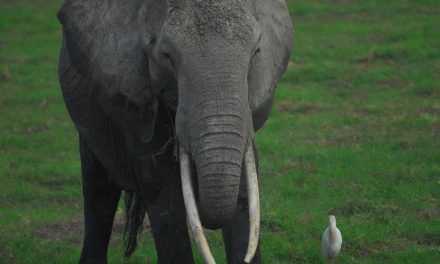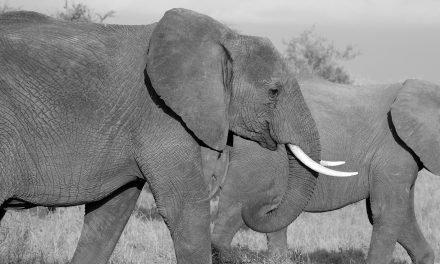Planning a safari trip to Africa? Before you embark on this thrilling adventure, it is important to arm yourself with essential knowledge about Africa Safari Safety. From understanding the potential risks and precautions to be taken, to learning about the local wildlife and their behavior, this article will provide you with all the information you need to ensure a safe and enjoyable experience in the African wilderness. Don’t let safety concerns hold you back from exploring the incredible beauty of Africa’s safari parks and reserves; read on to gain valuable insights that will help you make the most of your unforgettable journey.
Planning Your Safari
Choosing the Right Destination
When planning your safari, it is important to choose the right destination that offers the wildlife experience you desire. Africa is a vast continent with diverse landscapes and a wide array of safari destinations to choose from. Each destination has its own unique flora and fauna, so it’s essential to do some research and determine which region or country aligns with your preferences. Whether you dream of witnessing the Great Migration in Tanzania or tracking the Big Five in South Africa, understanding the different destinations will ensure that you have an incredible safari experience.
Researching the Local Customs and Culture
When traveling to a foreign country, it is crucial to familiarize yourself with the local customs and culture. Africa is a continent rich in traditions and values, and respecting these customs will not only enhance your experience but also show your appreciation for the local communities. Understanding the cultural norms, such as greetings, dress codes, and acceptable behavior, will help you navigate your interactions with locals and foster a positive and meaningful connection. Researching the customs and culture of your chosen safari destination will ensure that you are well-prepared and can fully immerse yourself in the local experience.
Determining the Best Time to Visit
Another important aspect of planning your safari is determining the best time to visit your chosen destination. Africa experiences distinct seasons, and this can significantly impact your wildlife sightings and overall safari experience. For example, if you are interested in witnessing the annual wildebeest migration in the Serengeti, you will need to plan your trip between July and October. Different regions also have different peak seasons, so researching the weather patterns, animal migrations, and vegetation cycles will help you choose the ideal time to visit. By selecting the right time for your safari, you can maximize your chances of encountering incredible wildlife and capture memorable moments.
Selecting Your Accommodation
Choosing Between a Lodge and a Tented Camp
When selecting your accommodation for your safari, you will often have the option to choose between a lodge and a tented camp. Each type of accommodation offers a unique experience and caters to different preferences. Lodges are typically permanent structures with spacious rooms, private bathrooms, and various amenities. On the other hand, tented camps provide a more immersive and authentic safari experience, with luxury tents that offer a closer connection to nature. Consider your comfort level, desired level of luxury, and the type of experience you are seeking when deciding between a lodge and a tented camp.
Checking Safety Measures at the Accommodation
Safety should be a top priority when selecting your safari accommodation. Before making a booking, ensure that the property has sufficient safety measures in place to protect guests from potential risks. This includes measures such as secure fencing, trained staff, and emergency protocols. Additionally, consider the location of the accommodation and whether it is situated in a low-risk area for wildlife encounters or potential hazards. By checking the safety measures at the accommodation, you can have peace of mind knowing that your safety is being taken seriously.
Reading Reviews and Ratings
Before finalizing your accommodation booking, it is essential to read reviews and ratings from previous guests. Reviews can provide valuable insights into the quality of service, cleanliness, and overall experience at the accommodation. Look for reviews from travelers who have similar preferences and expectations to ensure that the property meets your standards. Additionally, consider the credibility of the review sources and read a variety of opinions to get a well-rounded understanding of the accommodation. Taking the time to read reviews and ratings will help you make an informed decision and choose the best accommodation for your safari adventure.
Booking Your Safari
Using a Reputable Tour Operator
Booking your safari through a reputable tour operator is highly recommended to ensure a smooth and well-organized experience. A reputable tour operator will have extensive knowledge of the safari destination, experienced guides, and established relationships with reliable accommodations and transportation providers. They will also be able to tailor your itinerary to your preferences and budget, offering valuable advice and insider tips. Before choosing a tour operator, read reviews, seek recommendations from fellow travelers, and consider their level of expertise and professionalism.
Ensuring the Tour Operator Has a Valid License
When booking a safari, it is crucial to ensure that the tour operator has a valid license. A valid license ensures that the operator meets the necessary legal requirements and adheres to industry standards for safety and quality. You can inquire about the operator’s license and certifications before making a booking, or check if they are affiliated with recognized tourism organizations. A licensed tour operator will prioritize your safety and provide you with a professional and reliable safari experience.
Understanding the Inclusions and Exclusions
Before finalizing your safari booking, carefully review and understand the inclusions and exclusions of the tour package. Inclusions typically cover accommodations, meals, transportation, park fees, and game drives, while exclusions may include international flights, visas, and personal expenses. Understanding what is included and excluded in your safari package will help you budget accordingly and avoid any unexpected costs or misunderstandings. If there are any uncertainties or specific requests, communicate with your tour operator to ensure that your expectations are met.
Understanding Wildlife Safety
Following Instructions of Your Safari Guide
When embarking on a safari, it is essential to follow the instructions and guidance of your safari guide at all times. Safari guides are trained professionals who have extensive knowledge of wildlife behavior and safety protocols. They will provide you with valuable information on how to approach animals, when to observe from a distance, and how to avoid potentially dangerous situations. Trusting and respecting your guide’s instructions will not only ensure your safety but also help preserve the natural environment and wildlife habitats.
Maintaining a Safe Distance from Animals
While safari experiences offer incredible opportunities to see wildlife up close, it is crucial to maintain a safe distance from animals. Respect the animals’ space and avoid approaching them too closely, as this can cause them stress or trigger defensive behaviors. Adhering to the set distance guidelines, which may vary depending on the species, will help protect both you and the animals. Remember, observing animals in their natural habitat is about respecting their needs and maintaining a balanced coexistence.
Avoiding Loud Noises and Sudden Movements
When on a safari, it is important to avoid loud noises and sudden movements that could startle or disturb the animals. Animals have heightened senses and may perceive sudden movements or loud sounds as a threat. By maintaining a calm and quiet demeanor, you can minimize potential disturbances and ensure a more enjoyable wildlife viewing experience. Remember to be patient and allow the animals to dictate their behavior and interactions, as this will result in more authentic and natural encounters.
Staying Healthy on Your Safari
Getting Vaccinated Before Your Trip
Before embarking on your safari, it is crucial to consult with a healthcare professional to ensure that you are up-to-date on all necessary vaccinations. Depending on your destination, certain vaccines may be recommended or required. Common vaccinations for safari-goers include those for diseases like malaria, yellow fever, and typhoid. Taking the necessary precautions and getting vaccinated will help protect you from potential health risks and ensure a safe and healthy safari experience.
Packaging Essential Medications and First Aid Kit
It is advisable to pack essential medications and a well-equipped first aid kit for your safari. This includes any prescription medications you require, as well as over-the-counter remedies for common ailments such as headaches, allergies, and stomach upsets. Additionally, it is essential to pack items like insect repellent, sunscreen, bandages, and antiseptic creams. A comprehensive first aid kit will enable you to address minor injuries or illnesses that may occur during your safari and provide quick relief when needed.
Following Proper Hygiene Practices
Maintaining proper hygiene practices is vital for staying healthy on your safari. This includes frequent handwashing with soap and clean water, or using an alcohol-based hand sanitizer when access to water is limited. Be mindful of food and water hygiene, opting for bottled or purified water and avoiding raw or undercooked foods. Practicing good hygiene will help prevent gastrointestinal illnesses and other common travel-related health issues, ensuring that you can fully enjoy your safari adventure.
Ensuring Personal Safety
Registering with Your Local Embassy or Consulate
Before traveling to your safari destination, it is advisable to register with your local embassy or consulate. Registration will ensure that the embassy or consulate is aware of your presence in the country and can provide assistance in case of emergency or crisis situations. This is particularly important when traveling to remote areas where communication can be limited. By registering, you will have access to vital resources and support should the need arise during your safari.
Informing Your Family and Friends about Your Itinerary
Keeping your family and friends informed about your safari itinerary is essential for personal safety. Share details of your travel plans, including flight itineraries, accommodation bookings, and contact information for your tour operator or accommodation. This will enable your loved ones to reach you in case of an emergency or unexpected event. Regular check-ins with family and friends will also provide them with peace of mind, knowing that you are safe and enjoying your safari experience.
Keeping Valuables Secure
While on safari, it is important to keep your valuables secure to prevent loss or theft. This includes items such as passports, cash, credit cards, and expensive electronic devices. Safeguarding your valuables can be as simple as using a lockable bag or safe provided by your accommodation. Avoid displaying valuable items in public, and consider leaving unnecessary belongings at your accommodation when heading out for game drives. By taking these precautions, you can enjoy your safari with peace of mind, knowing that your valuables are protected.
Dealing with Emergency Situations
Knowing the Emergency Contact Numbers
Before embarking on your safari, make sure to familiarize yourself with the emergency contact numbers for your safari destination. This includes the local emergency services, as well as any specific contacts provided by your tour operator or accommodation. Save these numbers in your phone or carry them in a readily accessible location. In the event of an emergency situation, knowing the appropriate contact numbers will allow you to quickly seek assistance and ensure a swift and efficient response.
Being Prepared with Emergency Supplies
Being prepared with emergency supplies is crucial for handling unexpected situations during your safari. This can include items such as a flashlight, a whistle, extra water, snacks, and a fully charged mobile phone with a power bank. It is also advisable to carry a basic first aid kit and any necessary medications. Even though emergencies are unlikely, having the appropriate supplies readily available will provide you with reassurance and peace of mind throughout your safari adventure.
Knowing How to Respond to Dangerous Encounters
While rare, dangerous encounters with wildlife can occur on a safari. It is important to know how to respond calmly and appropriately in such situations. Listen to your safari guide’s instructions and follow their guidance in the event of an encounter with potentially dangerous animals. Avoid sudden movements or loud noises that may escalate the situation. By remaining calm, obeying instructions, and trusting the expertise of your guide, you can minimize the risk of harm and ensure a safe safari experience for everyone involved.
Respecting Local Wildlife and Environment
Avoiding Littering and Pollution
Respecting the local wildlife and environment is essential for preserving the natural beauty and integrity of safari destinations. Avoid littering by disposing of your waste properly and leaving no trace behind. Always adhere to designated pathways and avoid damaging vegetation or disturbing wildlife habitats. By minimizing your impact on the environment, you can help protect fragile ecosystems and ensure that future generations can also enjoy the wonders of Africa’s wildlife.
Not Feeding or Touching Wildlife
Feeding or touching wildlife should be strictly avoided during a safari. While it may be tempting to interact with animals, it is important to remember that wildlife is best observed from a respectful distance. Feeding animals can disrupt their natural feeding patterns and lead to dependency on human sources of food, which can be harmful to their health in the long run. Touching wildlife can also transmit diseases and cause stress to the animals. Adhering to these guidelines will help safeguard both you and the wildlife, ensuring a responsible and sustainable safari experience.
Supporting Conservation Efforts
Supporting conservation efforts is an impactful way to contribute to the long-term preservation of Africa’s wildlife and habitats. There are various organizations and initiatives dedicated to conservation, and you can contribute by donating or volunteering your time. Additionally, choose accommodations and tour operators that prioritize sustainable practices and support local conservation projects. By actively supporting conservation efforts, you can play a part in safeguarding Africa’s incredible biodiversity and ensuring its preservation for future generations.
Interacting with Local Communities
Respecting Local Customs and Traditions
When interacting with local communities during your safari, it is important to respect their customs and traditions. This includes dressing modestly, greeting locals respectfully, and avoiding behaviors that may be perceived as disrespectful or offensive. Take the time to learn about the local customs and traditions before your visit to ensure that you can engage in a meaningful and respectful manner. Building positive relationships with the local communities can enhance your safari experience and provide you with a deeper understanding of the region’s rich cultural heritage.
Supporting Local Businesses and Crafts
Supporting local businesses and crafts is a great way to contribute to the local economy and empower communities. Purchase souvenirs and handicrafts directly from local artisans, dine at locally-owned restaurants, and book experiences with local operators whenever possible. This ensures that the income generated from tourism activities benefits the local communities directly, contributing to their sustainable development. By supporting local businesses and crafts, you can make a positive impact and promote responsible and ethical tourism practices.
Seeking Permission Before Photographing People
Photographing people is a common activity during safaris, but it is important to seek permission before taking someone’s photograph. Respect individuals’ privacy and cultural beliefs by asking for their consent before capturing their image. Engage in meaningful interactions with the locals, learn about their stories, and share your experiences respectfully. By approaching photography with sensitivity and respect, you can create lasting memories while also fostering positive connections with the local communities.
Understanding Travel Insurance
Choosing the Right Travel Insurance Plan
Travel insurance is essential when embarking on a safari, as it provides financial protection and peace of mind in case of unexpected events or emergencies. When selecting a travel insurance plan, ensure that it covers the specific needs of your safari, including medical evacuation, trip cancellation/interruption, and coverage for costly safari-related equipment. Carefully review the policy terms, coverage limits, and exclusions to understand what is included in your plan and choose one that suits your requirements best. Safeguarding yourself with the right travel insurance will ensure that you can focus on enjoying your safari without worrying about unexpected costs or contingencies.
Understanding the Coverage for Safaris
When choosing a travel insurance plan, it is important to understand the coverage specifically related to safaris. Some standard travel insurance plans may not provide comprehensive coverage for certain safari activities and wildlife encounters. Ensure that the policy covers activities like game drives, walking safaris, and other adventure activities that you plan to participate in. Additionally, verify if there are specialized wildlife-related clauses, such as coverage for accidental animal encounters or medical emergencies resulting from wildlife interactions. Having a clear understanding of the specific coverage for safaris will enable you to make an informed decision and select a plan that adequately protects you during your safari adventure.
Reading and Comprehending the Policy Terms
Before purchasing travel insurance, it is crucial to read and comprehend the policy terms thoroughly. Pay close attention to coverage limits, exclusions, claims procedures, and any requirements for pre-approval or documentation in the event of a claim. Being familiar with the policy terms will allow you to understand what is covered and what is not, as well as the process for filing a claim if needed. If you have any questions or uncertainties, reach out to the insurance provider for clarification. By being well-informed about your travel insurance policy, you can navigate any unforeseen situations with confidence and ease.
In conclusion, planning and preparing for your safari adventure in Africa requires careful consideration of various factors. Choosing the right destination, understanding local customs, and determining the best time to visit are crucial aspects to consider. Selecting the appropriate accommodation, booking through a reputable tour operator, and understanding wildlife safety measures are essential for ensuring a safe and enjoyable safari experience. Staying healthy, ensuring personal safety, and being prepared for emergencies are important considerations when embarking on a safari. Respecting local wildlife, interacting with local communities, and understanding travel insurance further contribute to a responsible and memorable safari adventure. By following these guidelines and being well-prepared, you can embark on your African safari with confidence, ready to embrace the wonders of the continent’s wildlife and natural beauty.












